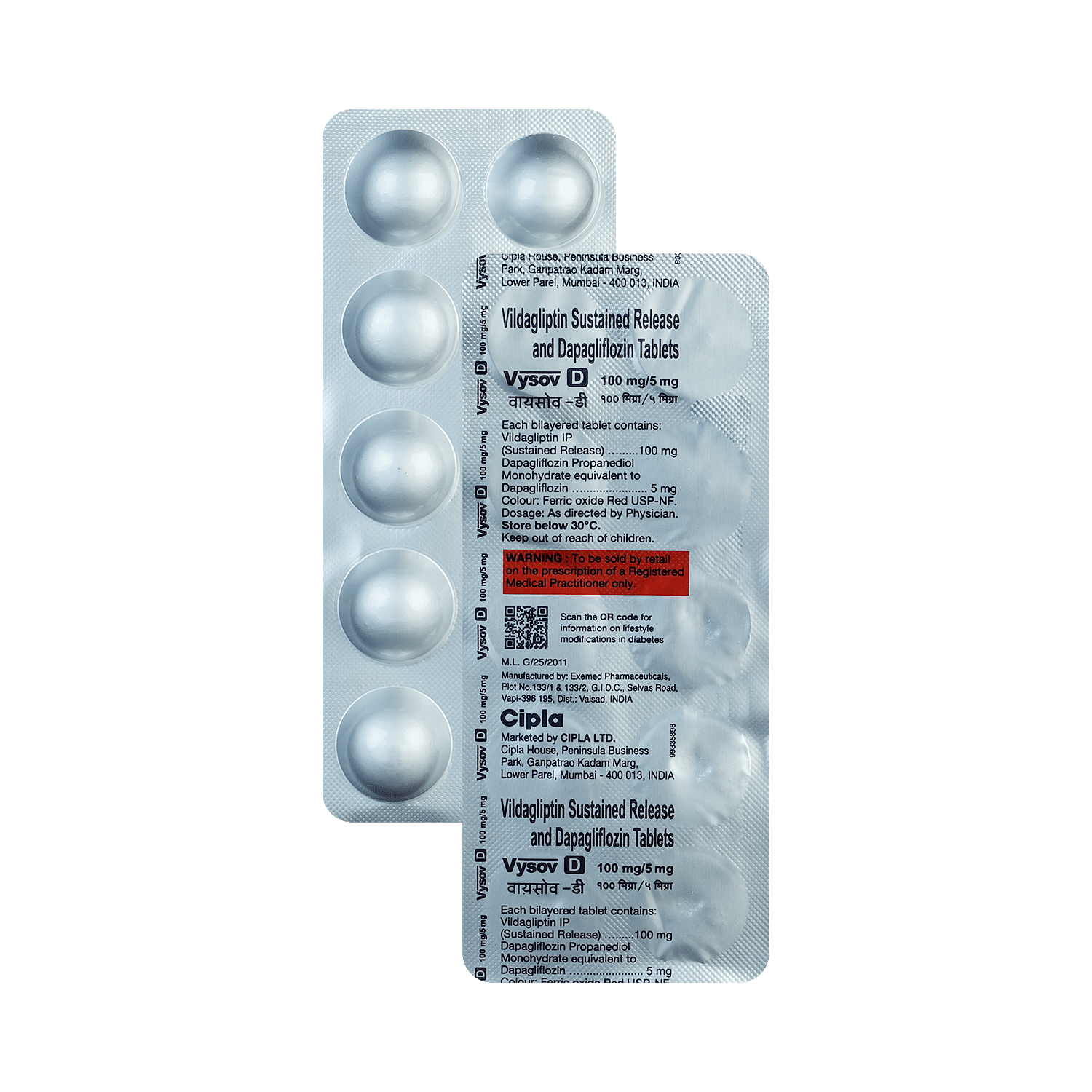
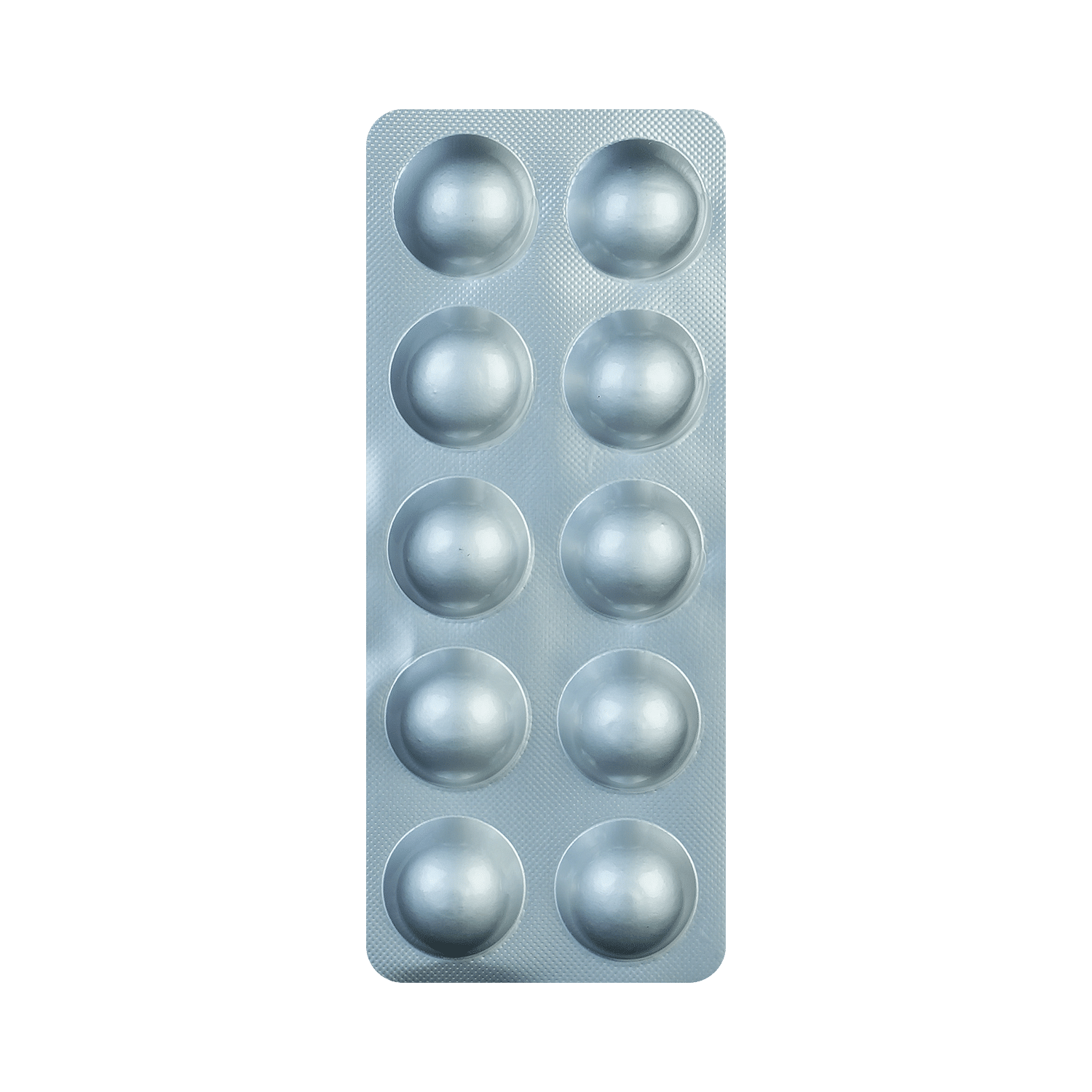
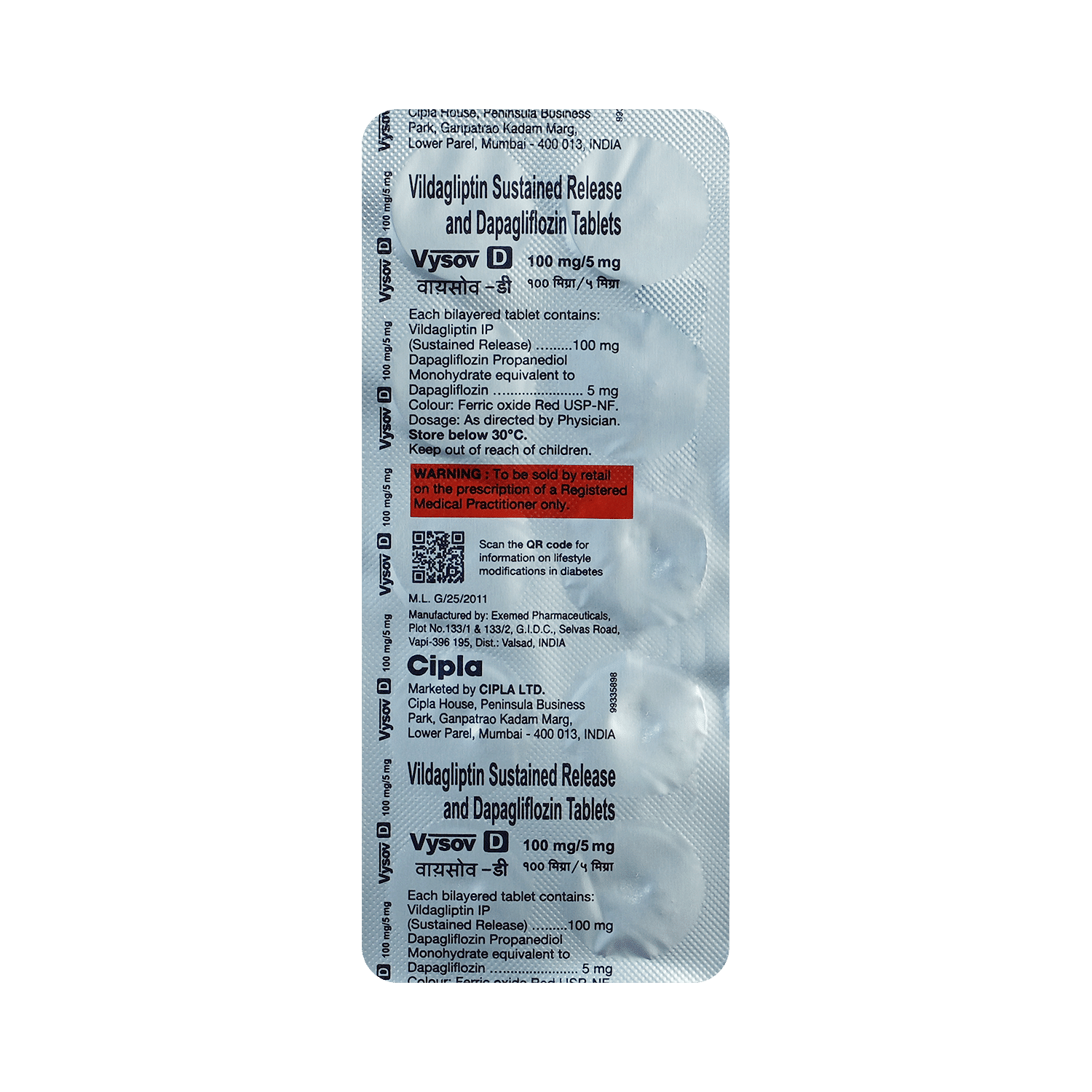
Vysov D 5mg/100mg Tablet SR
Manufacturer
Cipla Ltd
Salt Composition
Dapagliflozin (5mg) + Vildagliptin (100mg)
Key Information
Short Description
Vysov D 5mg/100mg Tablet SR is a combination medicine that helps control blood sugar levels in adults with type 2 diabetes mellitus.
Dosage Form
Tablet SR
Introduction
Vysov D 5mg/100mg Tablet SR is a combination medicine that helps control blood sugar levels. This medicine is used together with diet and exercise to improve blood sugar control in adults with type 2 diabetes mellitus. It helps in proper utilization of insulin, thereby lowering the blood sugar level.
Directions for Use
Take this medicine in the dose and duration as advised by your doctor. Swallow it as a whole. Do not chew, crush or break it. Vysov D 5mg/100mg Tablet SR may be taken with or without food, but it is better to take it at a fixed time.
How it works
Vysov D 5mg/100mg Tablet SR is a combination of two antidiabetic medications. Dapagliflozin increases urinary glucose excretion and reduces blood glucose levels. Vildagliptin reduces the amount of glucose produced by the liver by raising insulin levels and decreasing the levels of the glucagon (the hormone that increases blood glucose level).
Quick Tips
Your doctor will monitor your blood sugar levels regularly while taking this medication. Hypoglycemia (low blood sugar level) may occur when taken along with other antidiabetic medicines, or on delaying/skipping a meal. Check your blood sugar levels and have a snack/sugar source for immediate relief. If you get unusually thirsty, pass urine more frequently, and feel tired, you should let your doctor know. These are signs of too much sugar in your blood and your dose may need adjusting. Lifestyle changes like a low-fat and salt diet, exercise, not smoking, and cutting down on the amount of alcohol you usually drink may help this medicine work better.
Related Medicines

Gliptagreat-D5 Tablet

Vidaglo-D5 Tablet
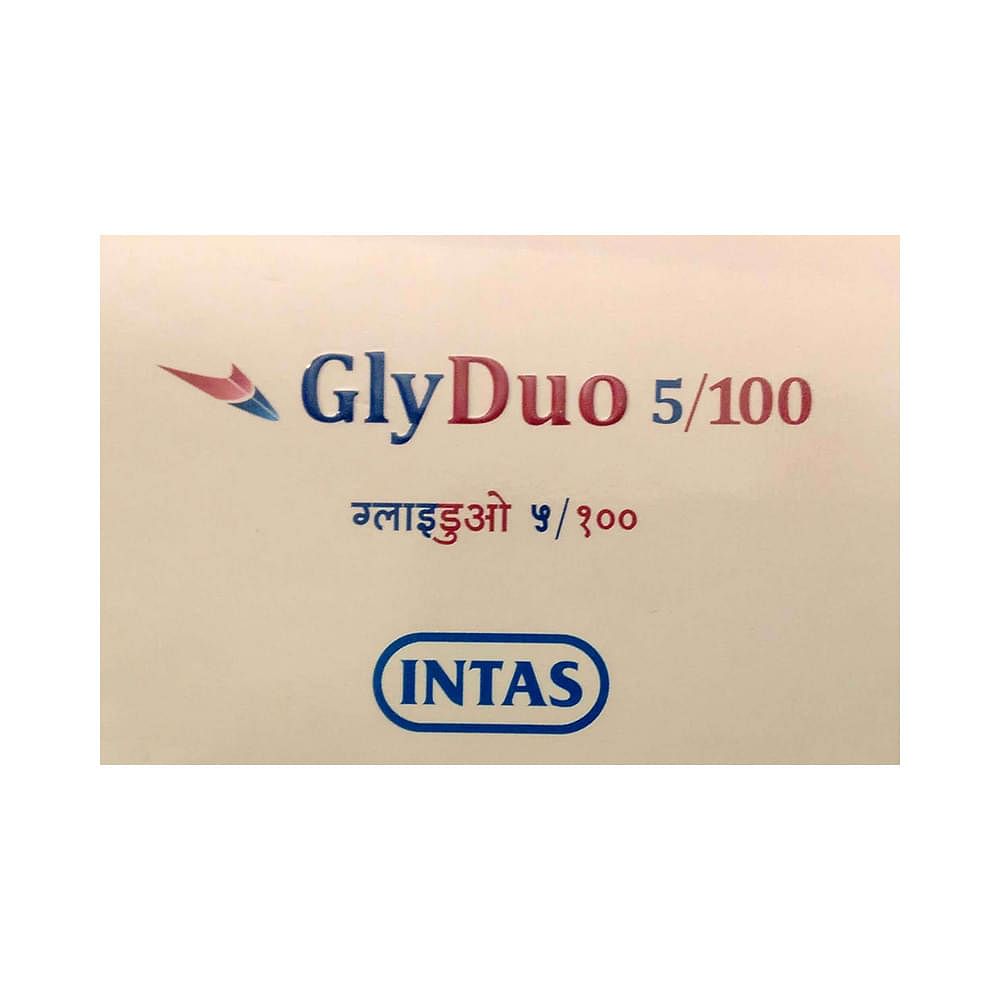
Glyduo 5/100 Tablet

Gliptoryl DSR 5 Tablet
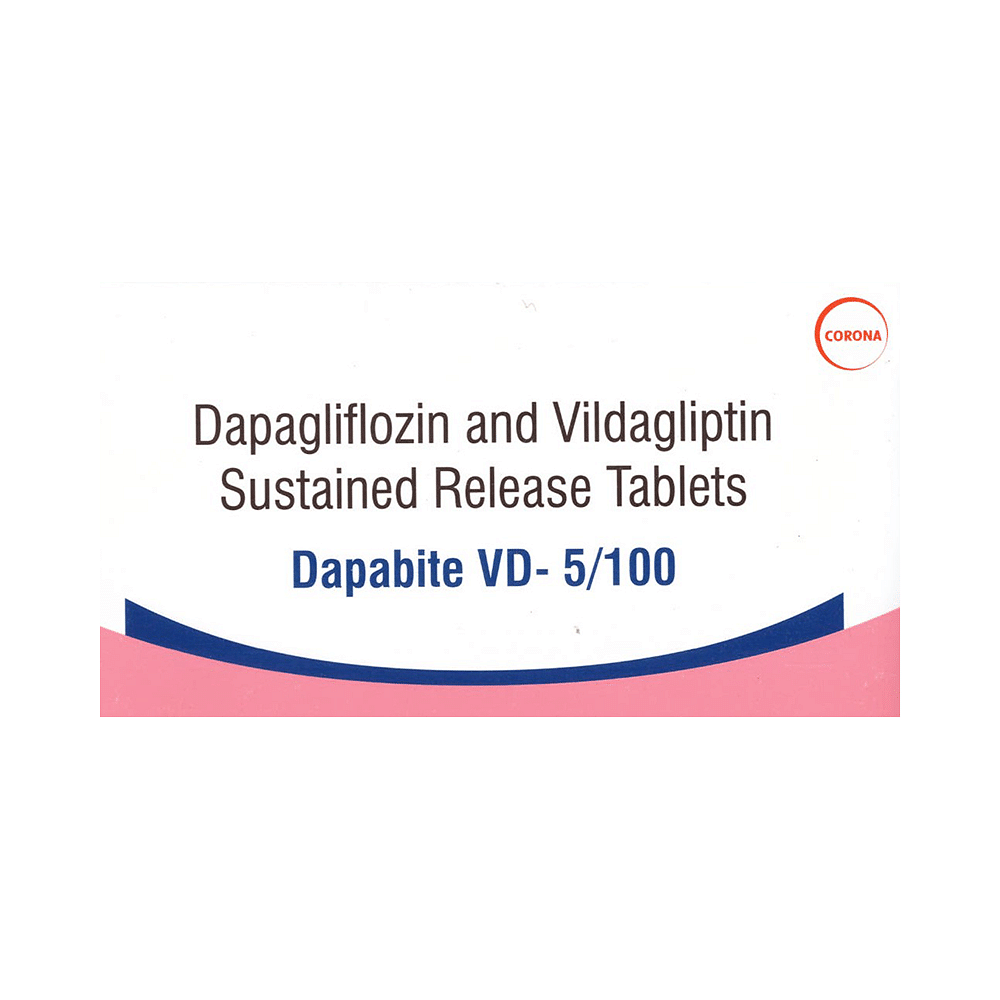
Dapabite VD 5/100 Tablet SR
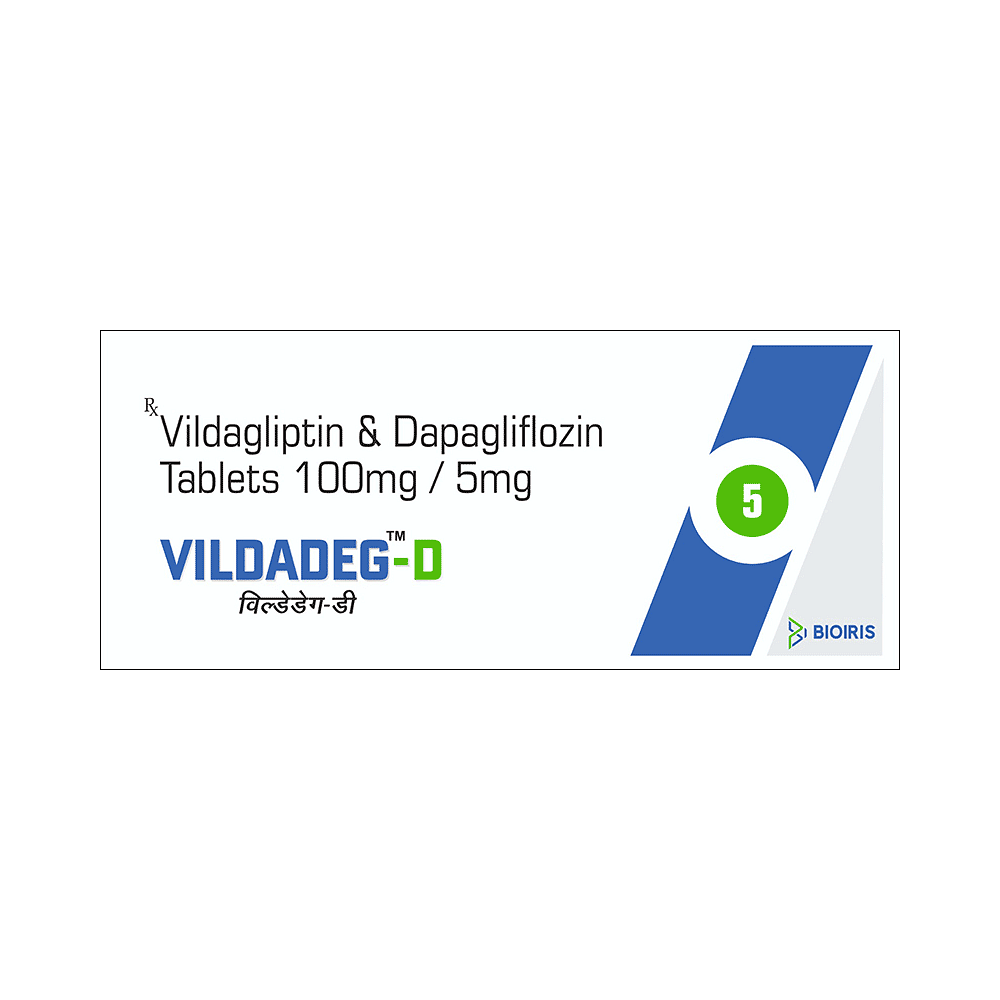
Vildadeg-D 5 Tablet SR

Vicemic D 5mg/100mg Tablet SR
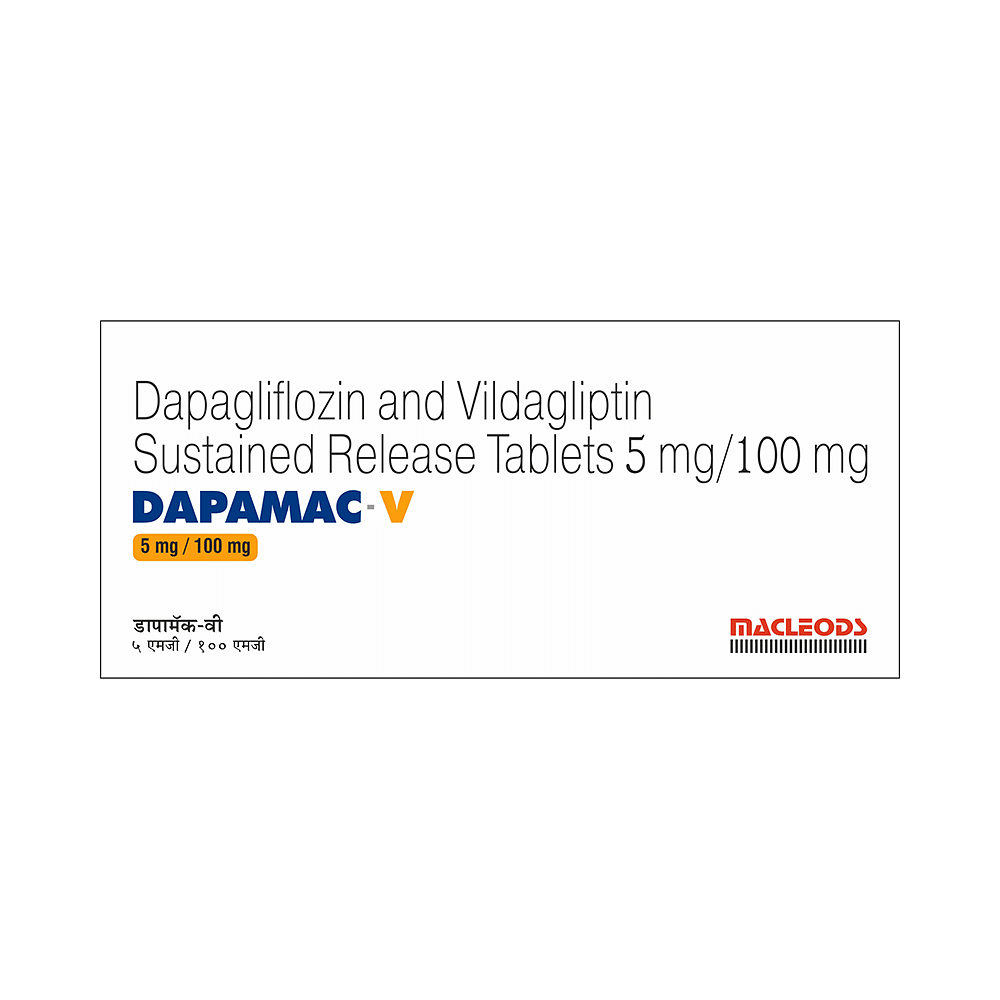
Dapamac-V 5mg/100mg Tablet SR
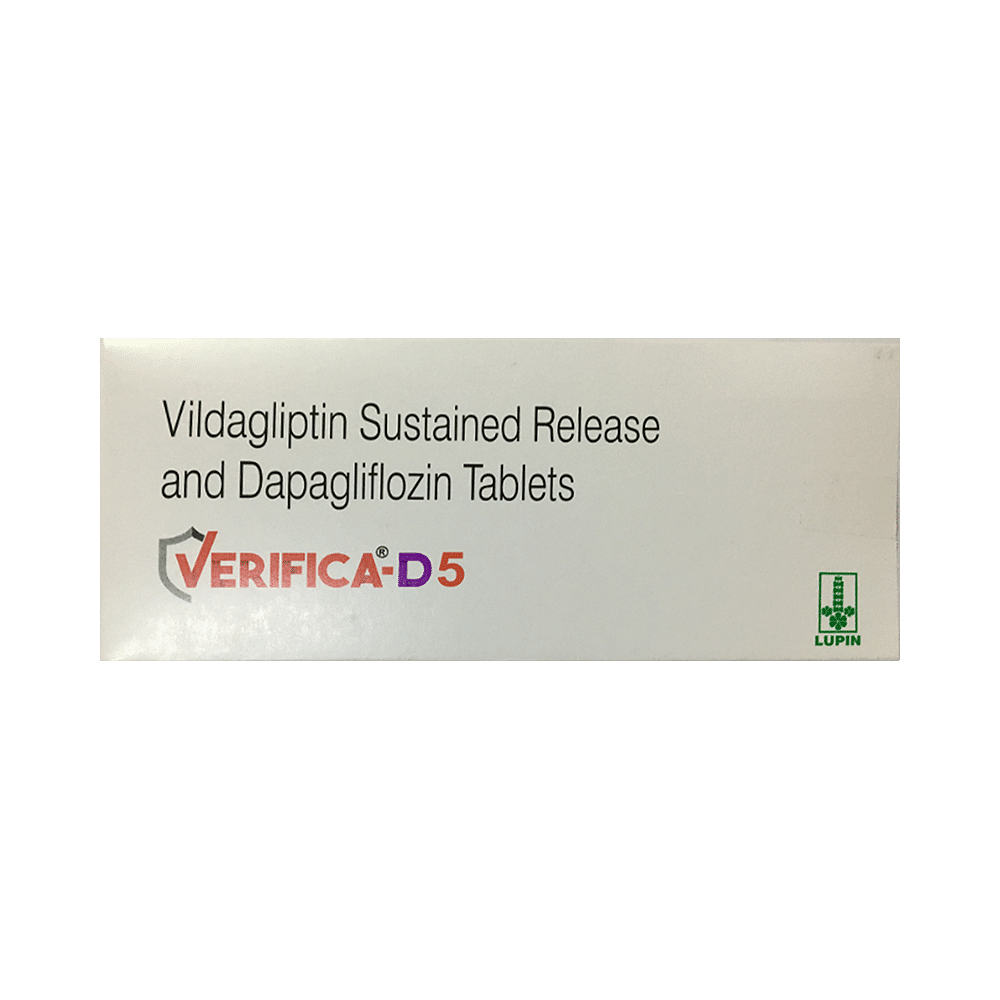
Verifica-D 5 Tablet SR

Vildalip-D 5/100 Tablet SR
Frequently asked questions
Is Vysov D 5mg/100mg Tablet SR safe to use?
Yes, Vysov D 5mg/100mg Tablet SR is generally considered safe when used as directed by the prescribing healthcare professional. However, it may cause side effects in some individuals. It's essential to follow your doctor’s instructions regarding dosage and timing.
Can Vysov D 5mg/100mg Tablet SR cause dizziness?
Yes, Vysov D 5mg/100mg Tablet SR may cause dizziness as a side effect. If you experience dizziness, sit or lie down until the symptoms subside. It's advisable to carry some sugary snacks or fruit juice with you in case of traveling.
Can I stop taking Vysov D 5mg/100mg Tablet SR without talking to my doctor first?
No, do not discontinue Vysov D 5mg/100mg Tablet SR without consulting your doctor. Stopping this medication suddenly may worsen your diabetes. Inform your healthcare provider if you experience any side effects or if there is no significant improvement in your condition.
How can I relieve diarrhea while on treatment with Vysov D 5mg/100mg Tablet SR?
Foods containing soluble fiber, such as bananas (ripe), oranges, boiled potatoes, white rice, curd, and oatmeal, can help manage diarrhea by absorbing excess fluid. Dehydration is a possible consequence of diarrhea; drinking 8-10 glasses of water daily is important to prevent dehydration. You may also opt for soups and juices frequently for hydration.
I am experiencing nausea, is this due to Vysov D 5mg/100mg Tablet SR?
Nausea can be a side effect of this medication. Eating smaller, more frequent meals might help reduce the feeling of nausea. Avoid food that's salty, spicy, fried, or fatty.
Can people with diabetes consume protein?
Yes, individuals with diabetes should include protein in their daily diet alongside other essential nutrients. Proteins are a key source of energy and building blocks for the body. They break down into glucose to release energy. Unlike carbohydrates, the metabolic process of proteins into glucose is slower, leading to a rise in blood sugar levels that may occur after a few hours.
Are artificial sweeteners good for people with diabetes?
No, artificial sweeteners are not recommended for individuals with diabetes. They can cause mild to severe side effects. It's better to limit or avoid their use as much as possible.
Can diabetes lead to kidney failure?
Yes, uncontrolled diabetes can damage the kidneys over time. A condition known as diabetic nephropathy can develop due to long-term diabetes. Diabetic nephropathy is a leading cause of kidney failure in people with diabetes. Managing diabetes effectively through lifestyle modifications, diet changes, regular blood sugar monitoring, and timely medication use helps prevent kidney damage.
Is diabetes curable?
Diabetes cannot be completely cured at present, but it can be effectively managed through lifestyle modifications, dietary changes, medications, and ongoing medical care. With consistent treatment and self-management efforts, individuals with diabetes can lead a healthy and fulfilling life.


